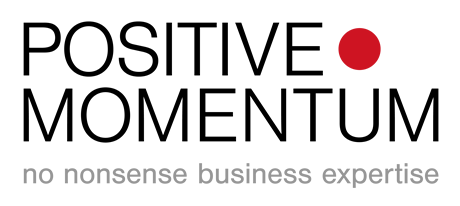What would you do if someone gave you 5 hours and 36 mins back a week?
In my quest to understand what the brightest minds are saying about the future of work, I recently came across a brilliant podcast by McKinsey on the subject of productivity post tech implementation. It suggested that, on average, the rapid acceleration of Artificial Intelligence, Robotics and Automation capabilities would lead us to a place where 16% of what we used to do, will be being done by robots by 2030. As supervised training machines (robots able to do repeated, manual tasks) are superseded by neural network machines (robots with visual recognition and language processing capabilities), robots will increasingly be able to do more and more of what we do currently, driving cars being just one example.
I include the link for those the analytically minded who want the detail. McKinsey Global Institute-Podcast-What is the future of work report-1st Dec 2017 The 16% is, of course, an average taken across all industries and a sample of 46 developed and undeveloped countries. Averages can be very dangerous things. To quote a rather old joke, “A man with his feet in an oven and head in a freezer is, on average, comfortable”. There are certain sectors where the robot replacement element will and in some cases, already is much higher (data collection or processing for example) and others much lower (care provision).
In some respects, 16% is a bit of a relief. So, we humans will continue to contribute in some meaningful way to the work place even when robots are doing a lot more of the work. The dystopian forecast of robots taking over all aspects of our work would appear to be overstated, or at least for the near term.
On further reflection however, my concern has focused on how we use that theoretical 16% to create real value for our organisations. If we don’t successfully achieve a higher return on the time robots will give us back, we could and should expect to see businesses simply cutting staff numbers or at best reducing working hours with pro-rata pay cuts. Assuming neither is palatable to you, how will you use the 16% of time you are given back to generate a measurable 16% higher return to the organisation that pays you? Your answer will depend on what you do for a living but I believe there are a few key areas relevant to us all;
Master the robots
For those of us that chose to be proactive participants in the economy for the foreseeable future, we will undoubtedly be asked to work alongside increasingly sophisticated robots. They may, of course, not look like R2-D2. Many will be embedded in core processes we will use on a daily basis. Their job will be to improve the speed and consistency of the data we are using and increasingly to produce conclusions from this.
Resisting, criticising or seeking ways to point out that the conclusions are wrong are all a monumental waste of time. Believe me, I’ve tried and failed. Machines, if they are anything, are reliable and will do what they are programmed to do. Where the conclusions are erroneous, the only culprit can be the programme and indeed, this should be raised to the right people or indeed reprogrammed with the new IT skills we have used our time to develop.
Assuming the programming is correct, our role must be to pay attention to what the robot is telling us and take the appropriate action. Failing to leverage the work the robot has done for us will prevent us from diverting our focus to the high value generating things which the robots can’t do. I know this sounds obvious but there are already numerous examples of clever platforms which are simply not being leveraged by the teams they were built for, simply because of a lack of knowing how to and therefore wanting to use them. If your company has just moved to Sales Force for example, take the time to truly understand how it can make you more productive and become the one that teaches the others in the office how to leverage it to your advantage. If it is suggesting 10 prospective clients you should be talking to, focus on reaching out to them rather than double checking the data that led Salesforce to suggest them to you.
Spend time more time with more clients
What will robots never be able to do as well as humans? Understand the emotional and at times illogical aspects of human nature and empathise with it. How will you know these? Quite simply from spending time with your existing and prospective clients. Because you took the time to take your client for a coffee or walked round her offices with her, you will know that she has an aversion to term loans, based on a bad experience in a previous business. You will know that any facility discussions need to offer short-term, self-liquidating facilities therefore such as invoice finance or supplier finance solutions. The robots from find as many clever ways to identify her borrowing needs and suggest term loan solutions, she won’t be listening.
Successful sales of anything are always only a combination of high levels of activity, great conversion skills and high average deal values. Spending an extra 5 hours a week with potential and existing customers can only ever feed into higher value for your organisation whatever value means for you. This can be excellent customer care, higher sales performance, better margins or all of the above. Not only will you have a higher chance of winning the business, you will also avoid a rates war with the competitors and chances are, you will retain and continue to build a great relationship which tour client will also value. I cannot see the robot doing any of that just yet.
Know when you are working and when you’re not
I know we’ve all been told this all our working lives but now is the time to truly listen.
Robots don’t;
- Multi-task by surreptitiously glance at FB, Instagram, Twitter several times an hour
- Procrastinate by reading everything that lands in their inbox whilst they are trying to complete and important task
- Make themselves feel productive by completing the low value adding work first and only start the stuff that is really important an hour before they need to leave the office








